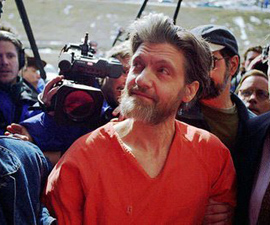Showing posts with label ideology. Show all posts
Showing posts with label ideology. Show all posts
Saturday, July 18, 2015
something about "The Great Debate" by Yuval Levin
Politics makes for especially caustic conversation in America these days. We discuss political polarization because we wonder if honest bipartisanship is dead and if we are headed for a point of no return. We sometimes seem violently rabid in our views; then we wonder if we have always been like this.
Whatever the case, Yuval Levin lays down some historical context for today's American Left-Right binary. Representing the founder of conservatism, Levin shows us Edmund Burke (1729-1797), widely credited as the founding philosophical Conservative. Levin briefly introduces the Dublin-born author, politician, and philosopher, then paraphrases Burke's political ideology, drawing largely from Burke's writings on the American and French Revolutions.
Representing the modern American Left is Thomas Paine (1737-1736). Steeped in both the American and French revolutions, the English-born Paine authored the (in)famous pamphlet "Common Sense," which, to many, inspired the rebels' declaration of independence from Britain in 1776. Levin paraphrases Paine, drawing from his American Revolution writings and his defense of the bloody French Revolution.
In The Great Debate: Edmund Burke, Thomas Paine, and the Birth of Left and Right, Levin devotes more time to Burke, largely using Paine to further refine an explanation of Burke's views. But Levin does not misrepresent Paine, exactly, so no real harm done. And Pain's shortchange comes as no suprise--Yuval Levin is a conservative intellectual born in Israel who founded National Affairs.
By the end of The Great Debate, Burke's and Paine's stances were so qualified, excepted, and nuanced as to be ripe for accusations of inconsistency and flip-flopping. Same old, same old.
Labels:
America,
American,
book review,
conservative,
Edmund Burke,
England,
Enlightenment,
France,
French,
ideology,
Left,
liberal,
nonfiction,
politics,
revolution,
Right,
The Great Debate,
Thomas Paine,
war,
Yuval Levin
Wednesday, June 13, 2012
About an article indirectly about authors and their texts
The Chronicle of Higher Education has a sort-of interesting article titled "The Unabomber's Pen Pal" that is about a college professor trying to teach the anti-technology ideas espoused by Ted Kaczynski among others (but especially by him). This professor seeks to remove from the remote Montana cabin and the remote mind of its terrorist author the ideas captured in Kaczynski's manifesto and resituate them in the academy. Apparently it often turns out that exploring the ideas on their own merit takes a backseat to discussing the practicality and ethics of doing so.
Within contemporary literary theory, can the text be removed from its author? How did the author get "into" the text in the first place?
And should he be removed? Is this a special kind of work? A unique case?

Kaczynski lived his ideology and practiced his philosophy. In one sense, by removing the author from the text, the professor is attempting to protect the text, give it viability in the marketplace of ideas. But at the same time, without its author, the text is deprived of the life Kaczynski lived in its manifestation--the life it advocates for, the revolution it endorses: all that is locked away, isolated, imprisoned so as not to threaten its academic life.
To wit, Kaczynski is first locked away so as not to threaten society; then he is locked away a second time so as not to threaten his own ideas. Indeed, the text is freed the moment its author is imprisoned.
"Kaczynski" is now an abstraction of the man who attacked society by sending bombs through the mail while hidden in a remote Montana cabin. When the name is attributed to the text, "Kaczynski" appears in faded print in its margins, and can be found scratched in between the lines, where it adds or invokes a certain character in the work. This character says, Yes, these words are dangerous, these words are of consequence to you and to the establishment. These are fighting words.
This is not to say you can't or shouldn't remove the author from his text (in a sense I'm all for it). It's just that, given the current practice of (critical) literary theory, if you try, you might expect the text to change. After all, the fact that the professor consciously has to remove the author, and that the Chronicle wrote about his trying to do so, shows current theory's unrelenting emphasis and reliance on the author function.
Subscribe to:
Posts (Atom)